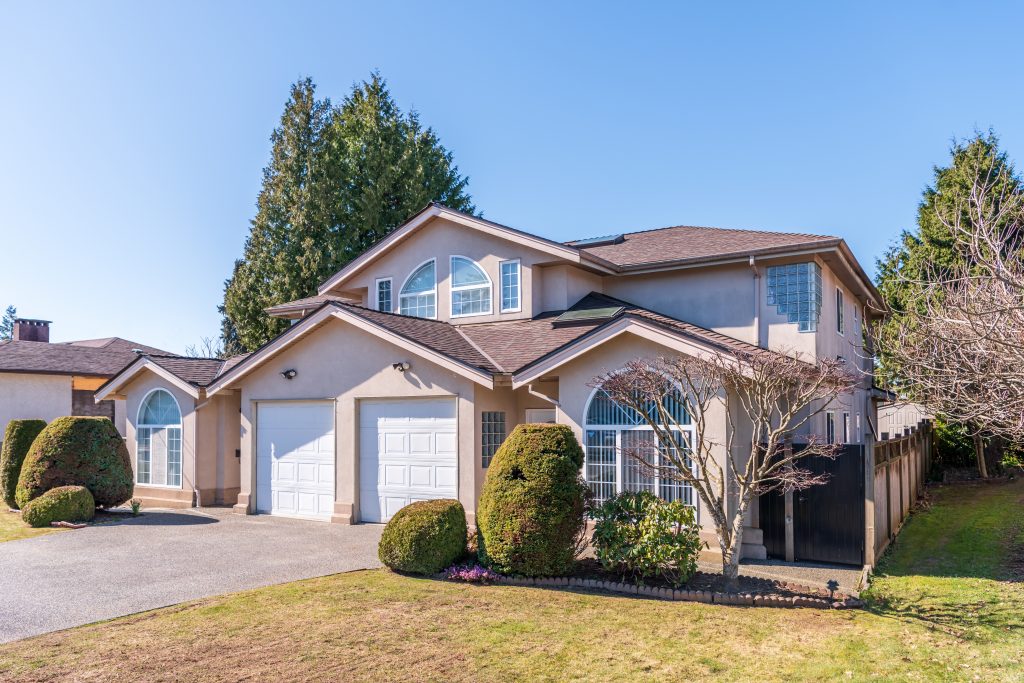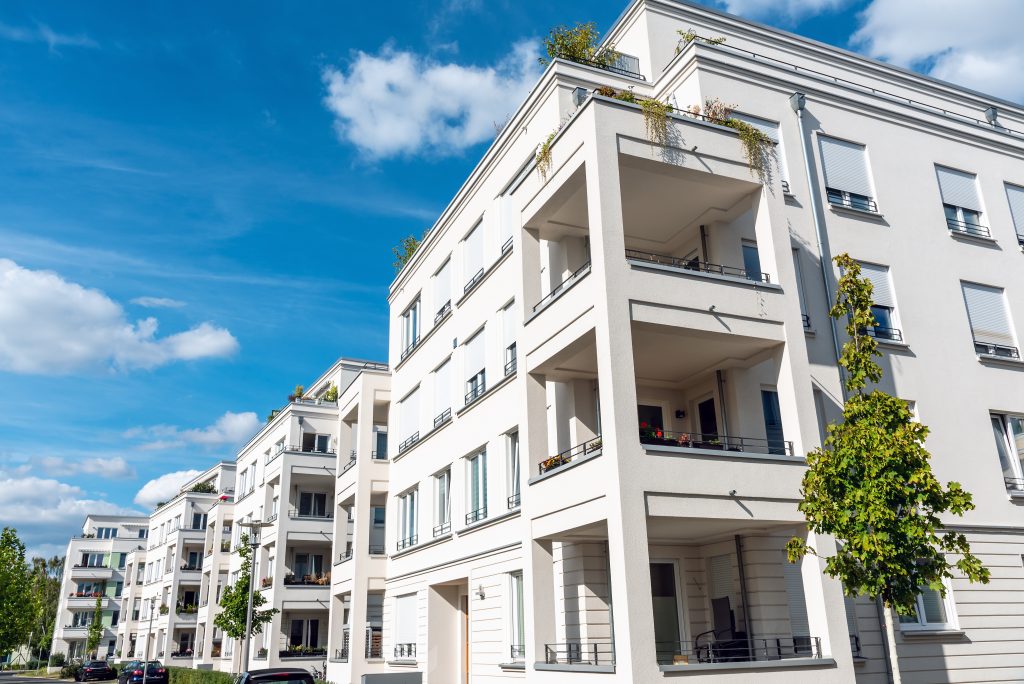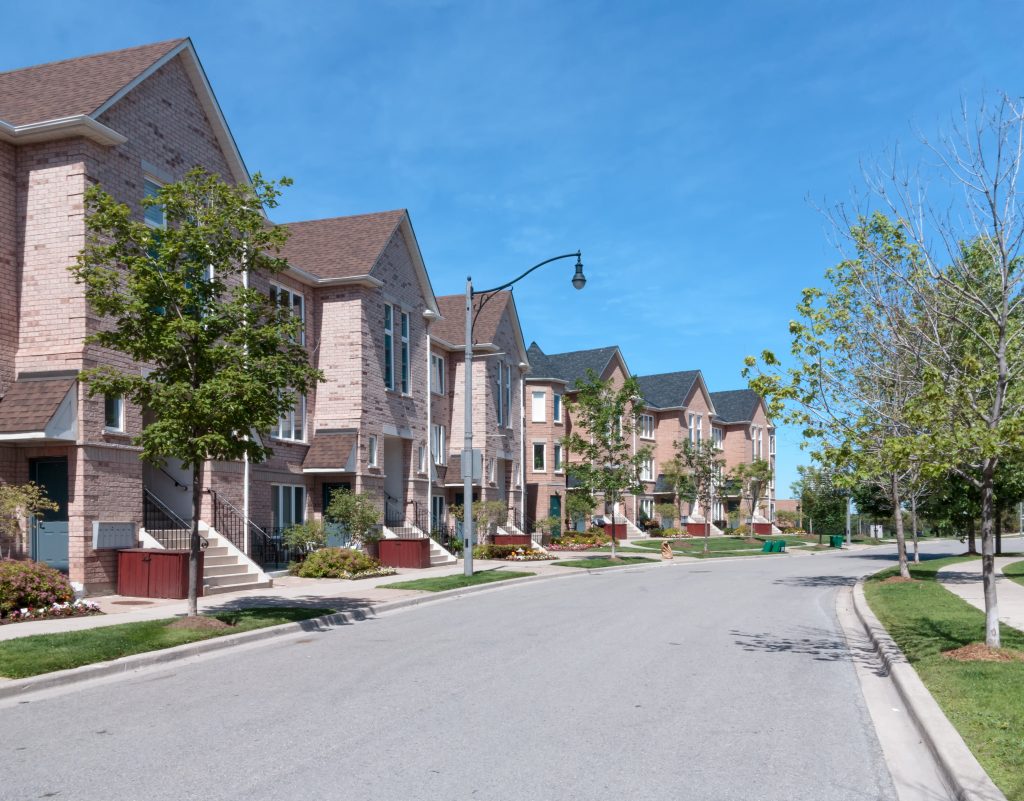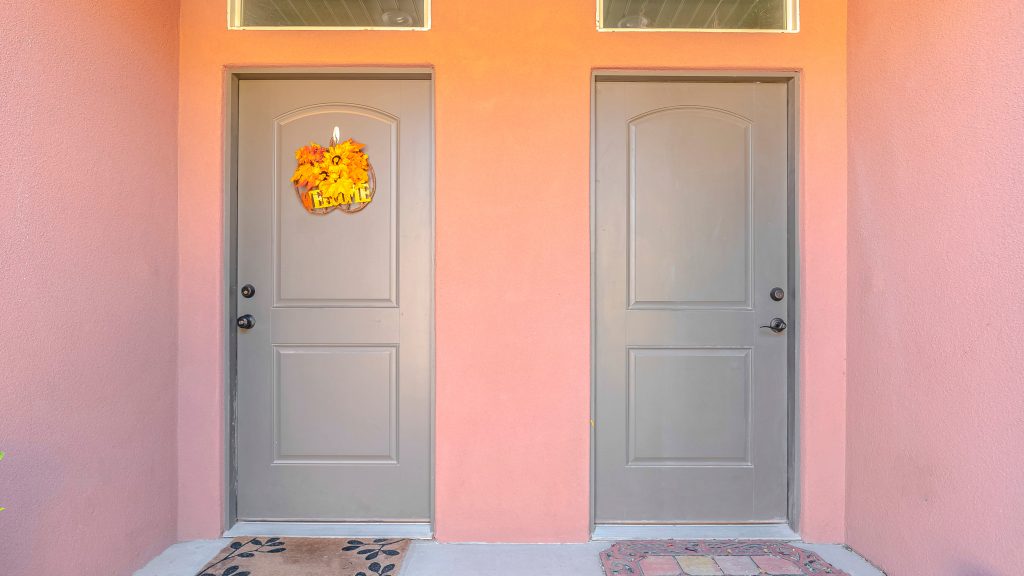Which Type of Residential Real Estate Should You Buy?
Featuring Guest Author: Ally Gelhaar, Loan Officer
Residential Real Estate
Buying a home is one of the most liberating things you can achieve as an adult. Homeownership gives you a sense of stability and empowerment as you venture off into a place to call your own. When you’re ready to buy a home, several options are available that aren’t just limited to a single-family home. Depending on your long-term goals, lifestyle, and overall budget, knowing which residential property type will meet your standards will make the rest of the process easier.
First, what is residential real estate? MasterClass defines residential real estate as “real property (land and any buildings on it) used for residential purposes.” In other words, residential real estate is a primary or secondary home, apart from an area conducted for commercial purposes.
Residential real estate comes in all shapes and sizes, so what you’re looking for in a home will come down to you and your goals.
Types of Residential Real Estate
Single-Family Home
A popular type of home you will encounter while shopping around is a single-family home that is built on its own lot and will not share walls with neighbors. Single-family homes may also have a garage space that may come attached to the home or detached and they will typically also have a front and/or backyard that may be fenced in.
Condominium (Condo)
Condominium communities can be a great option when you still want to own your own home, but maybe you don’t feel ready for a large living space and want a community feel. The size of condo communities can vary widely from a small cluster of four units to up to 500+ units. Larger condo communities may feel like living in an apartment community, with the major difference being that you own your unit.
Other features specific to condos include common walls, which are typically shared with neighbors, community amenities like pools and recreational spaces, and a Homeowners Association (HOA) which will take care of most of the building maintenance. Condos may have a smaller living space than some other property types but can be more affordable depending on your local market.
Townhome
If you are looking for a mix between a single-family home and a condo community, you might consider a townhome as an option. Townhomes are commonly a cluster of attached units and some have a small yard or patio space. Since townhomes typically have only a few units adjoined together, you may have fewer neighbors and more privacy than a condo. Some townhome communities can also be part of their own Homeowners Association but do not always have amenities like a pool or recreational spaces.
Multi-Units and Duplexes
Less common than the other property types mentioned, you may come across some listings with more than one unit on a single property. It could be between two and four homes adjoined, sharing common walls, or even different units separated by different levels. Depending on how the spaces are split, there may be shared or separate entrances. Unlike a condo where you would purchase a single unit, a multi-family property is purchased together if the units are on the same parcel of land. Any multi-family home with more than five units would be considered a commercial property and cannot be financed through traditional financing.
Pros and Cons of Each Property Type
Single-Family Home
One of the greatest benefits of owning a single-family home is the privacy of having your own space with no shared walls, yards, or patios. If the property is not within a Homeowners Association, you have the flexibility to make the home your own with paint, landscaping, and fencing. The resale value of a single-family home will tend to be the highest, as they are most desirable and have fewer difficulties with traditional financing options.
With the benefit of having your own space, there can also be drawbacks depending on how comfortable you may be with the exterior upkeep. Maintenance expenses related to the yard, roofing repairs and replacements, plumbing, and other exterior maintenance will be your responsibility and can be costly.
Condominiums (Condos)
Although the interior maintenance of your condo home will be your responsibility, the exterior maintenance such as roofing, walkways, landscaping, and amenity upkeep will be taken care of by your Homeowners Association. Depending on the condo community, you may access valuable amenity options like dog parks, pools, gyms, lounge areas with grills, and clubhouses.
While there are benefits of living within a Homeowners Association, they can also limit the use of your space by having pet restrictions, prohibiting certain remodeling features, and not allowing certain things on your balcony or in your windows. Part of the role of the HOA is to ensure the community upholds a certain standard. Living within a community with an HOA can also be very costly, with monthly association dues varying from $100 to $500+ per month, which must be included in your expense ratios when qualifying for financing. Another feature to be mindful of would be the lack of complete privacy since your neighbors will share adjoining walls and common areas.
Townhome
Depending on your needs, a townhome could be a great combination of the size and flexibility of a single-family home, with more affordability than a condo. You will have fewer neighbors and less shared space, which would allow for more privacy. Townhomes also may come with their backyard and garage, similar to a single-family home. Depending on the agreement with the HOA, exterior maintenance can be a shared responsibility between neighbors or the HOA. If the townhome community you select does have a mandatory HOA, monthly dues will be included in your qualification for the loan.
Townhome communities typically do not have the amenity options that a condo community would offer, however, this option would be more private than a condo, but less private and flexible when compared to a single-family home.
Multi-Units and Duplexes
Most shoppers would search for a multi-family home because of the investment opportunity to live in one unit and rent out the other units. It could also be a great option if your family members were looking at owning something together but occupying separate units.
Depending on what you decide to do with the remaining units, if you are taking on the role of landlord and renting the other units, you will be responsible for the maintenance costs of not only your home but the other homes as well. If you decide to rent out the other units, your space may be private. You also may consider hiring a property management company to handle the needs of your tenants, so your renters are not knocking on your door for a plumbing concern after hours.
How Property Types Affect the Mortgage Process
Single-family Homes
If you decide you want the flexibility of owning your own single-family home, the financing process can be very straightforward. Single-family homes can be financed through traditional financing options including, but not limited to, conventional, VA, FHA, USDA, and jumbo loan options. Qualification requirements for each loan program differ, so it is important to consult your local mortgage lender!
Condominium (Condos)
A condo can also be financed through traditional financing programs including conventional, VA, FHA, USDA, and jumbo. No matter which type of financing you qualify for, the most common challenge that can come up with financing your condo is pending litigation issues with the community. If the litigation is related to the safety, structure, habitability, or functional use of the property, traditional financing options may not be available.
Condo communities are also reviewed by the different mortgage agencies and depending on your loan program, the unit must be located within an approved community or ‘project’. If there is a condo you have identified within a project that has not been approved, was rejected, or was withdrawn, the traditional financing options will be limited. Please refer to your local mortgage adviser to determine if your condo community is approved for the loan program you are approved for.
The other common challenge with condo communities can be how ownership is held. Communities, where there is a common interest between owners as tenants-in-common or an undivided interest in the entire residential building and land, pose an issue for traditional financing sources, as others may have an ownership interest in your unit. If you are working with a lender to finance your condo, most programs require that your unit is owned solely by you with no other ownership interests from any other parties.
Townhome
Some townhome communities are sold as separate units or multi-units. If the townhome you are considering making an offer on is a single unit, the biggest consideration for financing would be ensuring the HOA can readily provide the documentation your lender will need to close the loan. Although townhomes can have an HOA, the home does not need to be in an approved project like a condo community would.
If the townhome is considered a multi-unit or a duplex, it could be advantageous as you read below for multi-unit and duplex financing.
Multi-Units and Duplexes
Purchasing multiple units can cause the property price to be more than a single-family home. However, traditional financing may allow you to offset your new mortgage loan with the rent you anticipate receiving. Your lender will request additional documentation for the unit that will be rented so that we can offset the payment up to 75% of the anticipated rent amount.
If a property contains two to four units, a multi-family appraisal is needed. If the units are considered manufactured housing, whereby the property was not built on-site and was delivered to the land already manufactured, there are different lending considerations to be made. Please contact your local mortgage adviser for more information.
Key Takeaways for First-Time Homebuyers
First-time homebuyers, there are several items to consider when buying your first home. Here are a few takeaways that could help you decide which property type is right for you.
Begin with a starter home
As a first-time homebuyer, you may not have the budget to pursue your ultimate dream home, so it may be best to purchase a starter home and gradually build your way up the real estate ladder. A starter home could be a smaller home in the form of a condo or townhome. By beginning with a starter home, it could go up in value down the road, and then you can sell it and use the profits toward upsizing towards a larger home.
Your first home may not be your forever home
This is important! Don’t buy your first home with the mindset that you’ll live there for the rest of your life. As time goes on, the market gets hotter, and your home equity increases, you’ll have the opportunity to move up into a bigger home that suits your needs. Keep in touch with your mortgage lender to track your home equity and see if this would be a viable option for you.
Look at all your options
First-time homebuyers have options to consider when buying their first home. When discussing with your mortgage lender, be very clear and transparent about your goals and your budget so they can decide what loan program is the best route to take. Our loan officers at RWM Home Loans have helped several individuals finance their first home with several of our down payment assistance and first-time homebuyer programs, eventually getting them into the next bigger home.
Which Property Type Will You Choose?
Now that you know all residential property types, which will you choose? Remember that whichever one you pursue, it may not be your forever home. Home buying should be a journey, not a fast path. It’s okay to start with a smaller property type, such as a condo or townhome, and then work your way up to your dream home. Either way, you’ll finally become a homeowner and be able to start building wealth through real estate.
If you’re ever unsure of how any of the property types would fit your lifestyle, try attending an open house in your area! An open house is a wonderful opportunity for potential buyers to examine the property as a whole, discover its best features, and imagine themselves living in the space. Learn more about open houses here.
About the Guest Author
 Ally Gelhaar
Ally Gelhaar
I was born and raised in Colorado, where I grew up playing ice hockey and a variety of music. I started my career in real estate through brokerage, eventually transitioning into property management for military housing on Camp Pendleton. I am excited to now be in mortgage because of my passion for real estate finance and investing. Learn more.
Financing details are for educational purposes only. All views and opinions do not constitute financial or legal advice and reflect requirements at the time of publication. Rates, program terms, fees, and conditions referenced are subject to change without notice. Not all products are available in all states for all amounts. All mortgage applications are subject to underwriting guidelines and approval. This is not an offer of credit or a commitment to lend. Residential Wholesale Mortgage, Inc. dba RWM Home Loans is an equal housing lender licensed by the CA Department of Real Estate #01174642 and CA Department of Financial Protection and Innovation under the California Residential Mortgage Lending Act. NMLS# 79445











